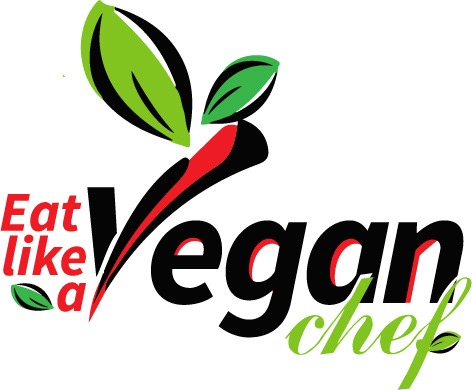A Plant-Based Perspective
Soy is a cornerstone of many whole food, plant-based diets. Despite its nutritional benefits, soy is often misunderstood. In this article, we’ll explore common myths about soy and provide evidence-based insights—supported by plant-based doctors and nutrition experts—to help you make informed dietary choices.
Myth 1: Soy Is a Hormone Disruptor
The Concern:
Many worry that the phytoestrogens in soy mimic human estrogen, potentially leading to hormonal imbalances.
The Facts:
- What Are Phytoestrogens?
Phytoestrogens are naturally occurring compounds found in soy that are structurally similar to estrogen. However, they are much weaker than the estrogen produced by the human body. - Expert Insight:
Plant-based nutrition experts such as Dr. Michael Greger and Dr. Neal Barnard have reviewed numerous studies and concluded that moderate soy consumption does not disrupt hormonal balance. In fact, research indicates that these compounds can even exert beneficial effects on cardiovascular health and may help in reducing menopausal symptoms. - Key Takeaway:
When consumed as part of a balanced, whole food diet, soy poses no threat to hormonal health. Instead, it offers a range of nutritional benefits.
Myth 2: Soy Negatively Affects Thyroid Health
The Concern:
There is a belief that soy consumption interferes with thyroid function, particularly in those with hypothyroidism.
The Facts:
- What the Research Shows:
Studies have demonstrated that in individuals with a normal (euthyroid) thyroid, moderate soy consumption does not impair thyroid function. For those with existing thyroid conditions, soy can be consumed safely with proper medical guidance. - Professional Perspective:
Many plant-based doctors affirm that the fear of soy-induced thyroid dysfunction is largely unfounded when soy is eaten in its traditional, minimally processed forms like tofu, tempeh, and edamame. - Key Takeaway:
For most people, soy does not pose a risk to thyroid health. Those with specific thyroid conditions should consult their healthcare provider, but soy remains a nutritious option for the majority.
Myth 3: Soy Is an Incomplete Protein
The Concern:
Some claim that soy protein is inferior because it allegedly lacks certain essential amino acids.
The Facts:
- Complete Protein Source:
Soy is one of the few plant-based proteins that is complete, meaning it contains all nine essential amino acids necessary for the body. - Nutritional Benefits:
Beyond its protein content, soy provides fiber, healthy fats, and an array of vitamins and minerals. This makes it an excellent component of a balanced diet, especially for those transitioning to or maintaining a plant-based lifestyle. - Key Takeaway:
Soy is not only a high-quality protein source but also supports overall nutritional needs in a whole food plant-based diet.
Myth 4: All Soy Products Are Highly Processed

The Concern:
There is a misconception that soy foods are overly processed and thus less healthy.
The Facts:
- Variety of Soy Foods:
Traditional soy products like tofu, tempeh, edamame, and miso are minimally processed and retain much of the soybean’s natural nutrients. In contrast, highly processed soy protein isolates or textured vegetable proteins should be consumed in moderation. - Expert Guidance:
Nutrition experts recommend choosing whole or minimally processed soy foods to maximize health benefits, aligning with whole food, plant-based principles. - Key Takeaway:
Not all soy is created equal. Emphasizing whole, minimally processed soy products can offer the best nutritional value.
Myth 5: Soy Increases the Risk of Cancer
The Concern:
Some worry that soy consumption may raise the risk of hormone-related cancers, particularly breast cancer.
The Facts:
- Epidemiological Evidence:
Research, including large population studies, suggests that regular soy consumption is associated with a reduced risk of certain cancers. The isoflavones in soy may have protective effects by modulating cell signaling pathways involved in cancer development. - Clinical Perspective:
Many plant-based physicians assert that soy is safe for most people and may even confer a protective benefit against some cancers when included as part of a balanced diet. - Key Takeaway:
Current evidence supports the inclusion of soy in a healthy diet, with many studies indicating potential cancer-protective benefits rather than an increased risk.
Final Thoughts
Soy is a versatile and nutrient-dense food that plays an important role in a whole food, plant-based diet. The myths surrounding soy often stem from early research or misinterpretations that do not hold up under the scrutiny of current evidence and expert review.
For those looking to transition to or maintain a plant-based lifestyle, incorporating traditional soy products like tofu, tempeh, and edamame can provide high-quality protein and essential nutrients without compromising health. As with any food, moderation and variety are key. If you have specific health concerns or dietary needs, consulting with a plant-based nutrition professional can provide personalized guidance.
If you’re interested in exploring a holistic approach to transitioning to a whole food, plant-based and gluten-free lifestyle, consider our programs to help you make sustainable lifestyle changes and debunk common nutritional myths.
Embrace the science, enjoy the flavors, and feel confident in the choices you make for a healthier, vibrant life.


